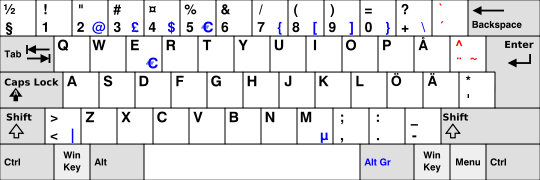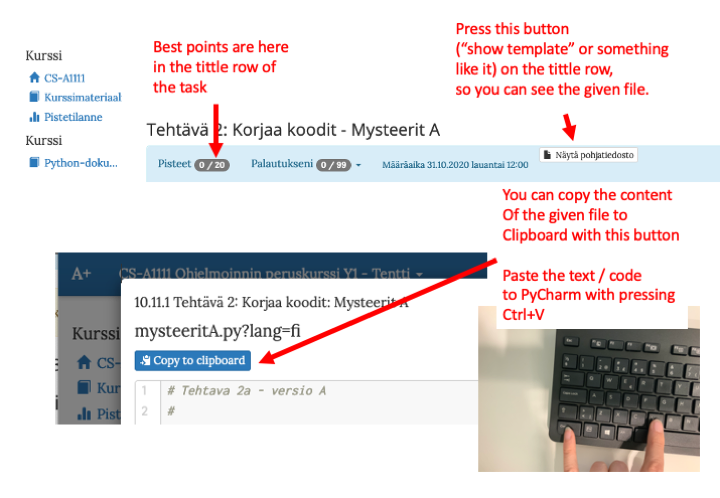CS-A1113 - Basics in Programming Y1, Lecture, 6.9.2022-16.12.2022
Kurssiasetusten perusteella kurssi on päättynyt 16.12.2022 Etsi kursseja: CS-A1113
Osion kuvaus
-
Exams in study year 2022–2023
The following exams are available for the study year. Exam dates will be updated here as the are arrangements are decided.
- November 29th to December 16th, 2022: Course exam using the EXAM studio platform (with instructions below), enroll to exam by 22.11.2022
- Retake exam in February, 21. - 28.2.2023
- Retake exam in May 23. - 30.5.3023
The following instructions are available on this page:
- Enrolment to the exam: How to sign up for the exam in the EXAM classroom
- Arriving to the exam: How to come to the exam and start it
- How to code Python in the exam
- How to submit exam answers to A+ to initial grading
- What material is available during the exam
- Structure of the exam and how to time answering the questions
- Submitting the exam i.e. ending the exam attempt
- Grading of the exam and publishing the results
The bolded parts of these instructions are available during the exam as an attachment, but you should familiarize yourself with them beforehand so that you have more time to think during the exam. Information related to the contents of the exam is available in the Course Requirements section.
The EXAM studio offers exams in a separate space under video surveillance with a restricted environment. EXAM's own instructions are here, describing the general process and instructions. There are differences that concern the exam of this course, and they are given below. Here you can find a guidance video of the EXAM Studio. The usage terms are given in Student's EXAM guide, under Guidelines and terms of use for Exam.
The exam arrangements are done by university lecturer Sanna Suoranta (responsible teacher of the Finnish version of the exam).
The instructions below are updated on 25th of November 2022













